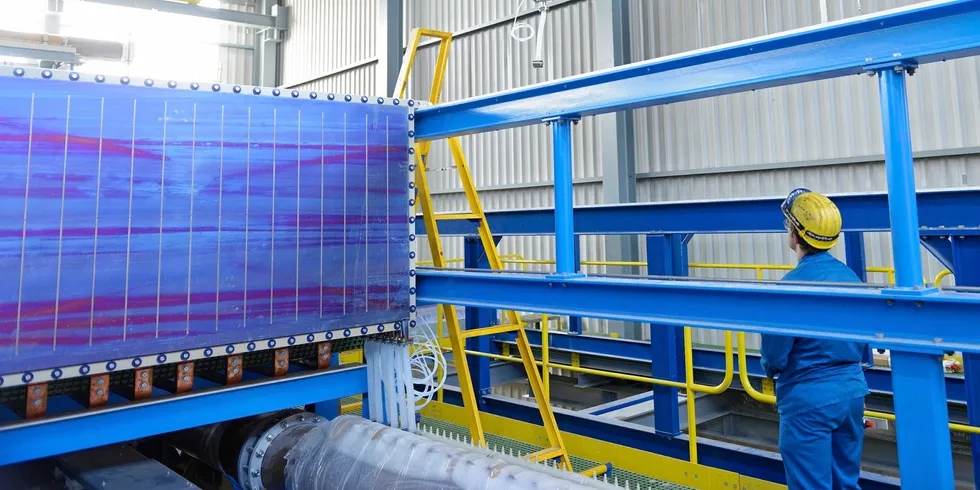'Disruptive approach': Thyssenkrupp to boost H2 electrolyser production line to 5GW
Industrial conglomerate receives funding from German government for three flagship green hydrogen projects

Industrial conglomerate receives funding from German government for three flagship green hydrogen projects
